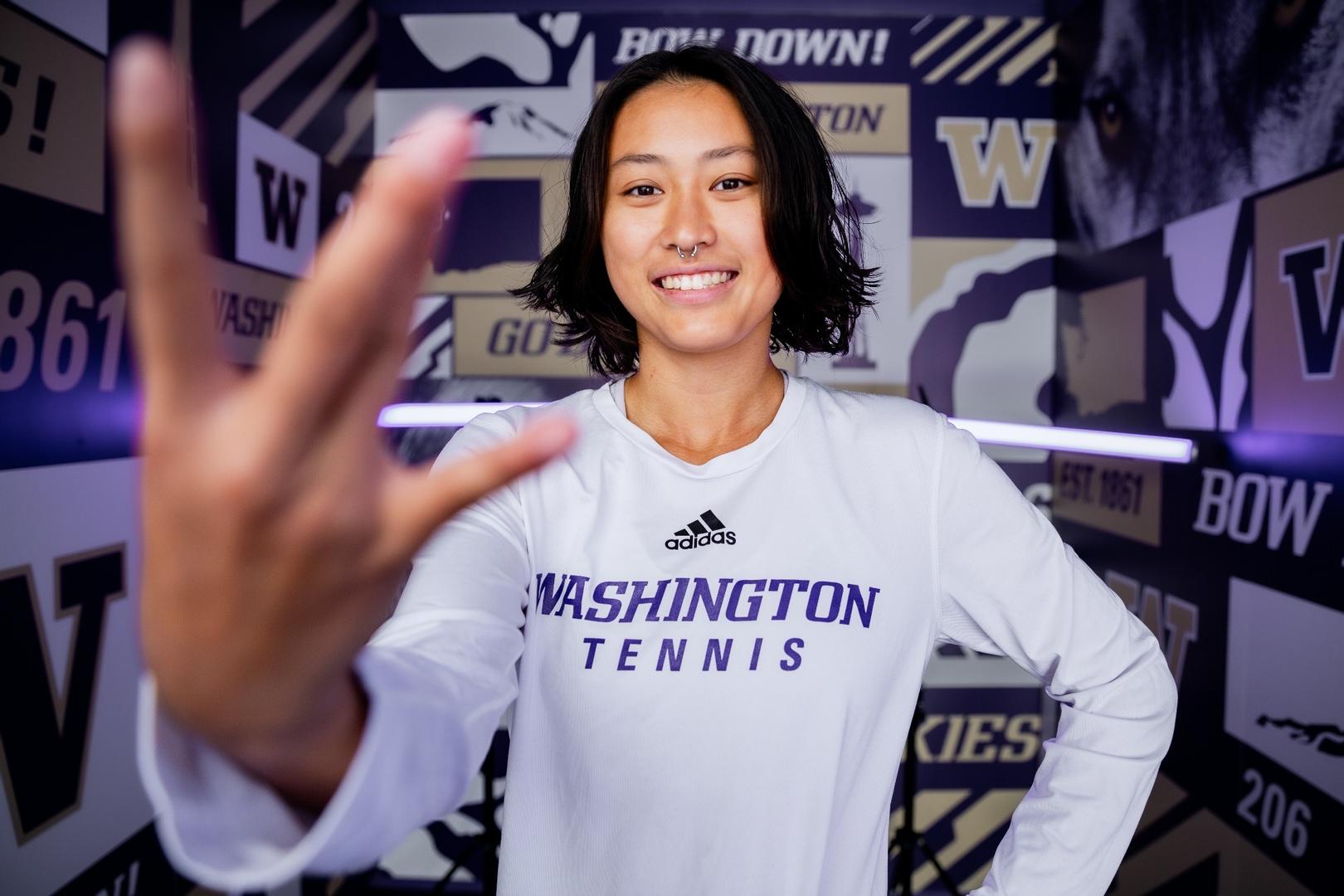Yolanda Lin grew up in Sammamish, Wash., not so far from the University of Washington campus, but always believed she wanted to take her collegiate career farther from home. After visiting campus during high school, Lin ran with the strong feeling that she had – UW was the right place for her.
She committed her junior year of high school – early by tennis standards – noting that the team dynamic and coaching staff were the main draws for her.
Four years later, Lin has grown immensely as a tennis player, but the team culture that initially drew her to Washington still stands.
“This year’s team – we get along so well on and off the court,” Lin said. “It’s really evident that we care about each other a lot and are always looking out for each other. Whether it’s reminding each other to bring something to practice or on a trip, helping out with school, with tennis, with errands, anything. I think that translates well to on the court in competition because we know we all have each others’ backs.”
In the spirit of having each others’ backs and supporting fellow Dawgs, Lin commented on one of her favorite memories in a Husky uniform – the win of a teammate.
“Hikaru’s win against Vanderbilt at ITA National Team Indoor Championships was really big,” Lin said. “She clinched the match for us and she was down so far. We just had so much belief – that’s what stood out to me – we were down and we were out, but no one on the team ever thought we were going to lose. We had so much belief in each other.”
COMMUNICATION IS KEY
Lin noted that one of the many things that differs between college tennis and junior tennis is how much you play as a team at the collegiate level. She has learned more and more over the past four seasons just how important talking is, both on and off the court.
Communication has helped Lin bring more energy on the sidelines and perform better in competition.
“I’ve learned a lot about how to feed off other people’s energy and how to bring energy to raise the level of the team,” Lin said. “I hadn’t realized before just how important playing together is – how much energy impacts my performance.”
Having a close-knit group makes talking through on-court details less nerve-racking and more beneficial for improvement. With the level of respect each player on the team has for one another, feedback is welcomed and communication on the court is always encouraged.
“I’ve learned from the coaches and from…
Click Here to Read the Full Original Article at University of Washington Athletics…

